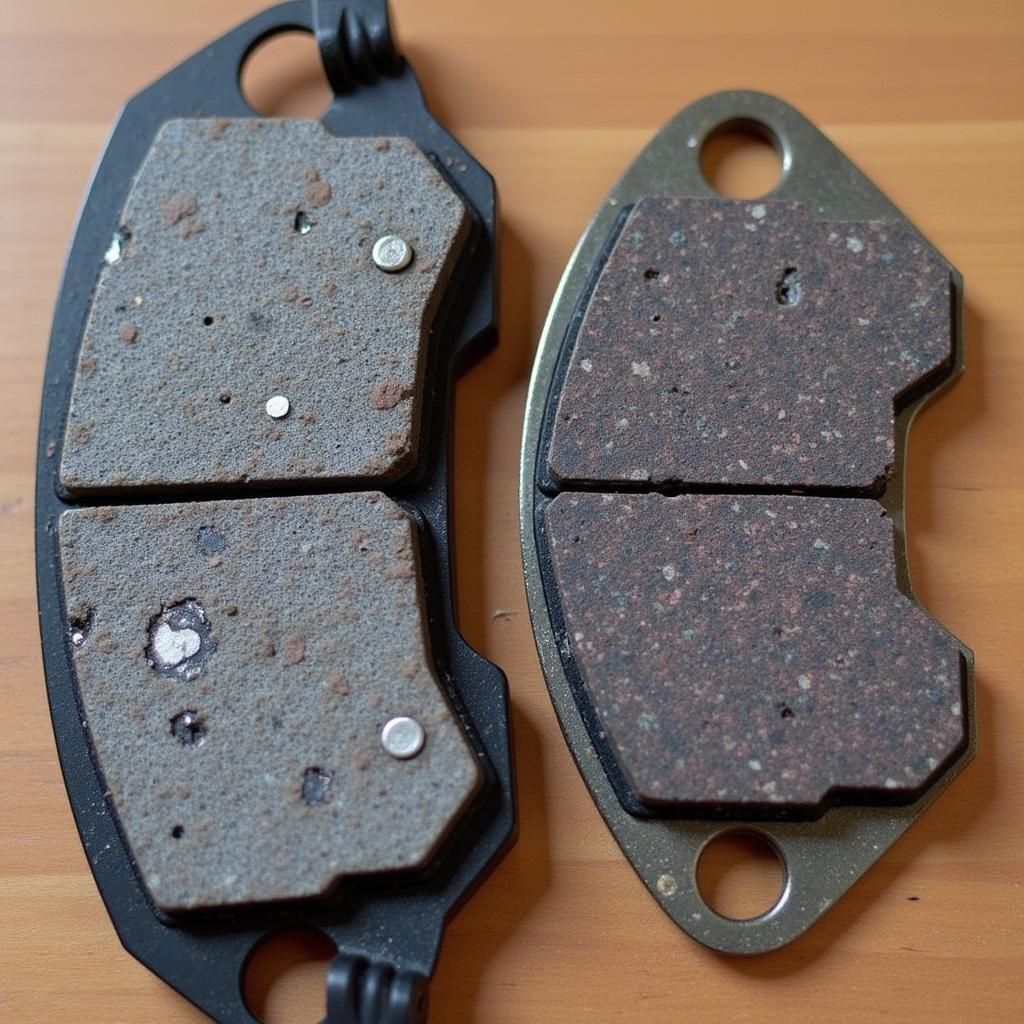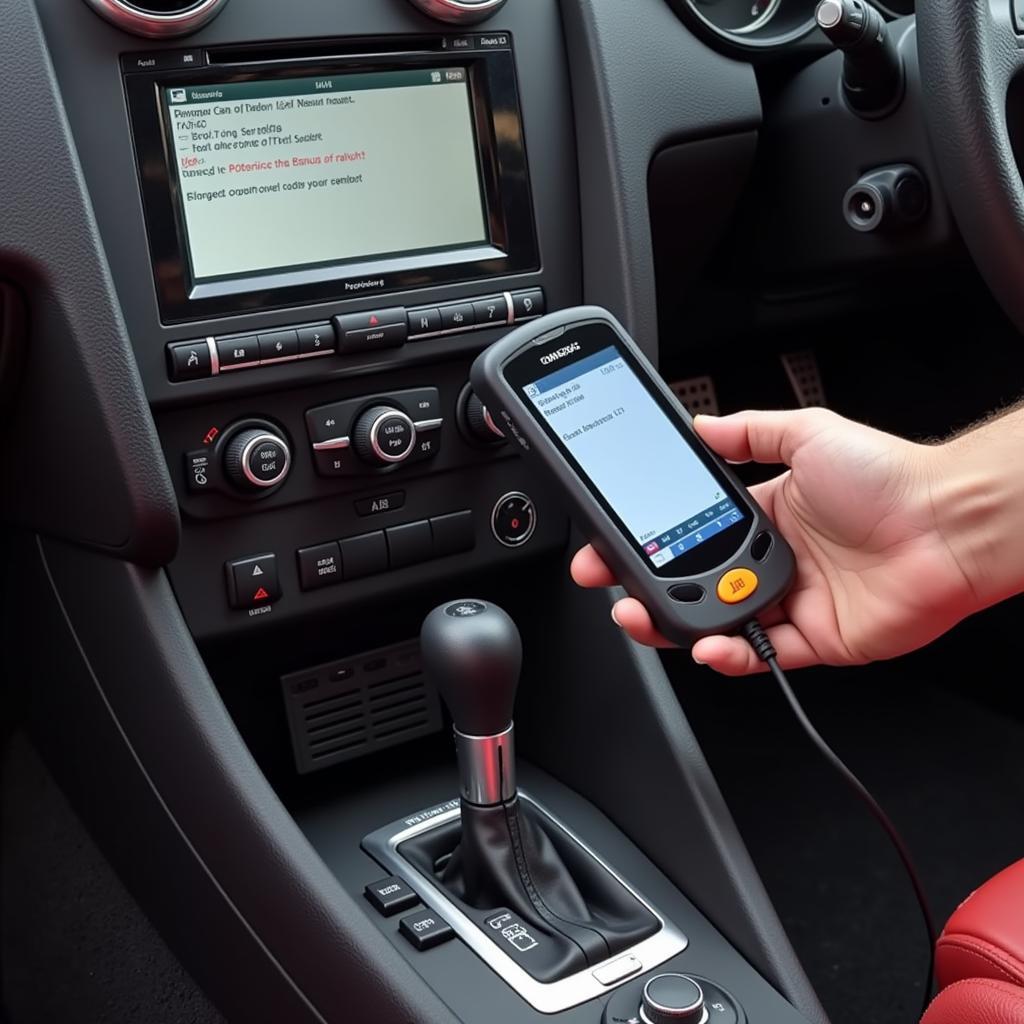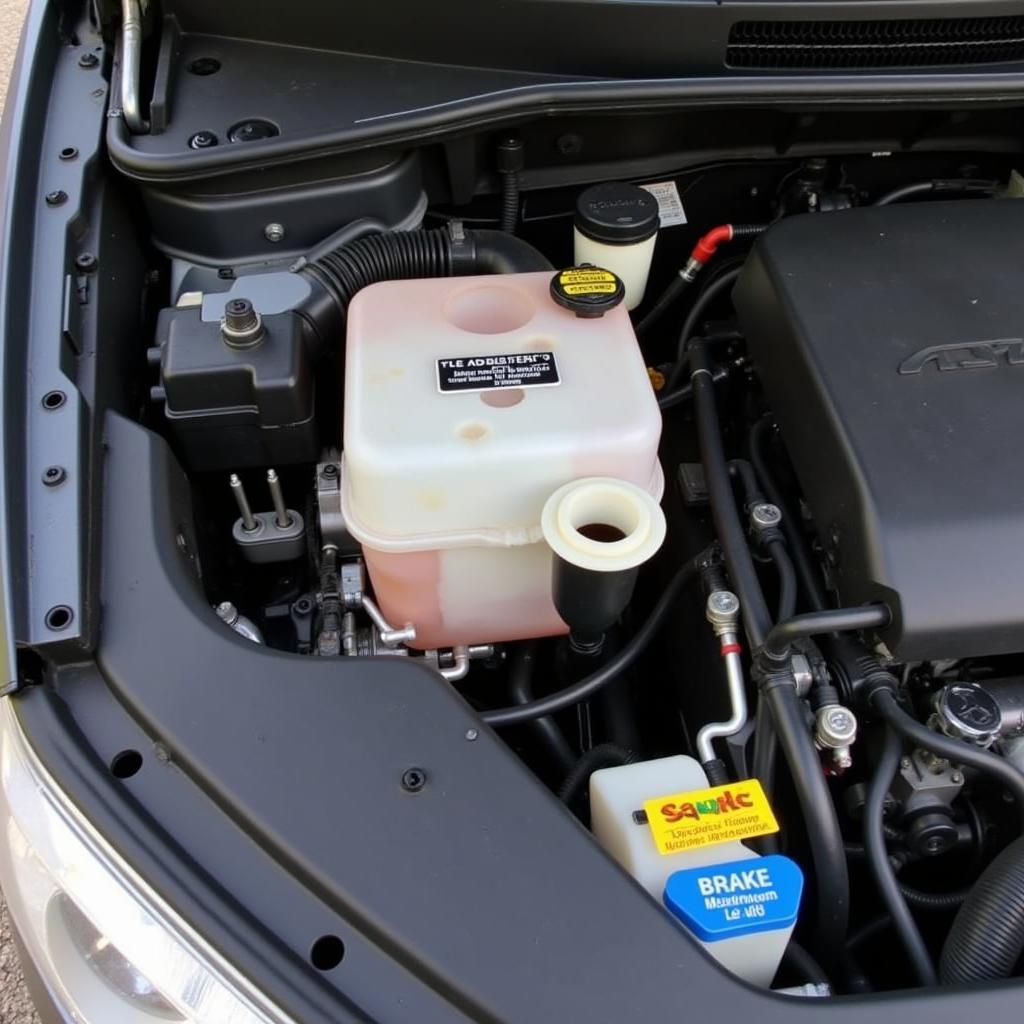Your vehicle’s braking system is one of its most crucial safety features. Recognizing the warning signs of brake failure is essential for preventing accidents and ensuring your safety on the road. While some issues might seem minor initially, they can quickly escalate into dangerous situations if left unaddressed.
Modern vehicles are equipped with complex systems, and diagnosing brake problems often requires specialized knowledge and tools. As an automotive electrical engineer specializing in remote diagnostics, programming, and software installation for automotive repairs, I’ve encountered numerous cases of brake failure. Through my experience, I’ve identified common warning signs that every driver should be aware of.
Common Warning Signs of Brake Failure
Understanding the different ways your brakes communicate potential problems can mean the difference between a routine repair and a serious accident. Here are some of the most common warning signs of impending brake failure:
1. Squealing or Screeching Brakes
While some brake noise is normal, a high-pitched squeal or screech when you apply the brakes often indicates worn brake pads. Brake pads have a built-in metal indicator that makes this noise when they wear thin, signaling the need for replacement.
 Worn Brake Pads
Worn Brake Pads
Ignoring this sound can lead to metal-on-metal contact, damaging the rotors and requiring more extensive – and expensive – repairs.
Expert Insight: “Many people underestimate the importance of timely brake pad replacement,” says Mark Williams, a certified automotive technician with over 20 years of experience. “Worn brake pads not only reduce braking efficiency but can also damage other components, leading to costly repairs.”
2. Grinding Noises When Braking
A loud grinding sound when braking, especially if accompanied by a vibration in the brake pedal, is a serious red flag. This often signals that the brake pads are completely worn down, and metal is grinding against metal. Continued driving in this condition can severely damage the brake rotors, calipers, and other brake components.
3. Vibrating or Pulsating Brake Pedal
If you feel a pulsating sensation in the brake pedal when applying the brakes, it could indicate warped brake rotors. Rotors are metal discs that the brake pads clamp down on to stop the vehicle. Over time, excessive heat can cause rotors to warp, resulting in uneven surfaces that cause vibrations.
4. Soft or Spongy Brake Pedal
A brake pedal that feels soft or spongy and goes down further than usual before engaging the brakes could indicate a problem with the brake fluid system. This could be due to:
- Air in the brake lines: Air is compressible, which can lead to a soft pedal feel and reduced braking force.
- Brake fluid leak: A leak in the brake lines or a faulty brake hose can reduce the hydraulic pressure needed for effective braking.
- Worn-out master cylinder: The master cylinder is responsible for converting the force you apply to the brake pedal into hydraulic pressure. A worn master cylinder may not generate enough pressure for proper braking.
Any of these issues compromise your braking system’s performance and require immediate attention from a qualified mechanic.
Expert Insight: “Never ignore a soft or spongy brake pedal,” warns Sarah Chen, a senior automotive engineer specializing in braking systems. “It’s crucial to have your brake system inspected by a professional to identify and address the underlying cause.”
5. Pulling to One Side When Braking
If your vehicle pulls to one side when you apply the brakes, it suggests an imbalance in the braking force between the left and right wheels. Several factors can contribute to this issue:
- Uneven brake pad wear: One brake pad wearing down faster than the others can cause uneven braking force.
- Stuck brake caliper: A seized caliper can prevent the brake pads from releasing properly on one wheel, leading to constant friction and pulling.
- Collapsed brake hose: A collapsed brake hose restricts brake fluid flow to one wheel, resulting in reduced braking force on that side.
6. Burning Smell When Braking
A strong, acrid smell similar to burning rubber or plastic while braking, especially after prolonged or hard braking, often indicates overheated brakes. This could be due to:
- Riding the brakes: Continuously resting your foot on the brake pedal, even slightly, can generate excessive heat and lead to overheating.
- Stuck brake caliper: A seized caliper prevents the brake pads from disengaging fully, causing constant friction and heat buildup.
Ignoring a burning smell can lead to significant damage to brake components, including brake fluid breakdown and even brake failure.
Conclusion
Being aware of the warning signs of brake failure is crucial for safe driving. Regular brake inspections, timely maintenance, and addressing any unusual sounds or sensations can prevent dangerous situations. If you experience any of the symptoms mentioned above, it’s essential to take your vehicle to a qualified mechanic for immediate inspection and repair. Remember, a well-maintained brake system is vital for your safety and the safety of others on the road.



